These popular topics are heating up. Explore today's most viewed pages.
Turkey vultures are my favorite birds. I love to watch them float through the sky, like black pirate ships, rarely flapping their wings. They are easy to pick out from other raptors because they hold their wings in a V shape called a dihedral. Bald eagles, who have a wider wingspan—an average of 83 inches compared to the vultures’ 67 inches—glide with their wings level. Turkey vultures also display distinct feathers in a zigzag pattern on the edges of their wings like outstretched fingers.
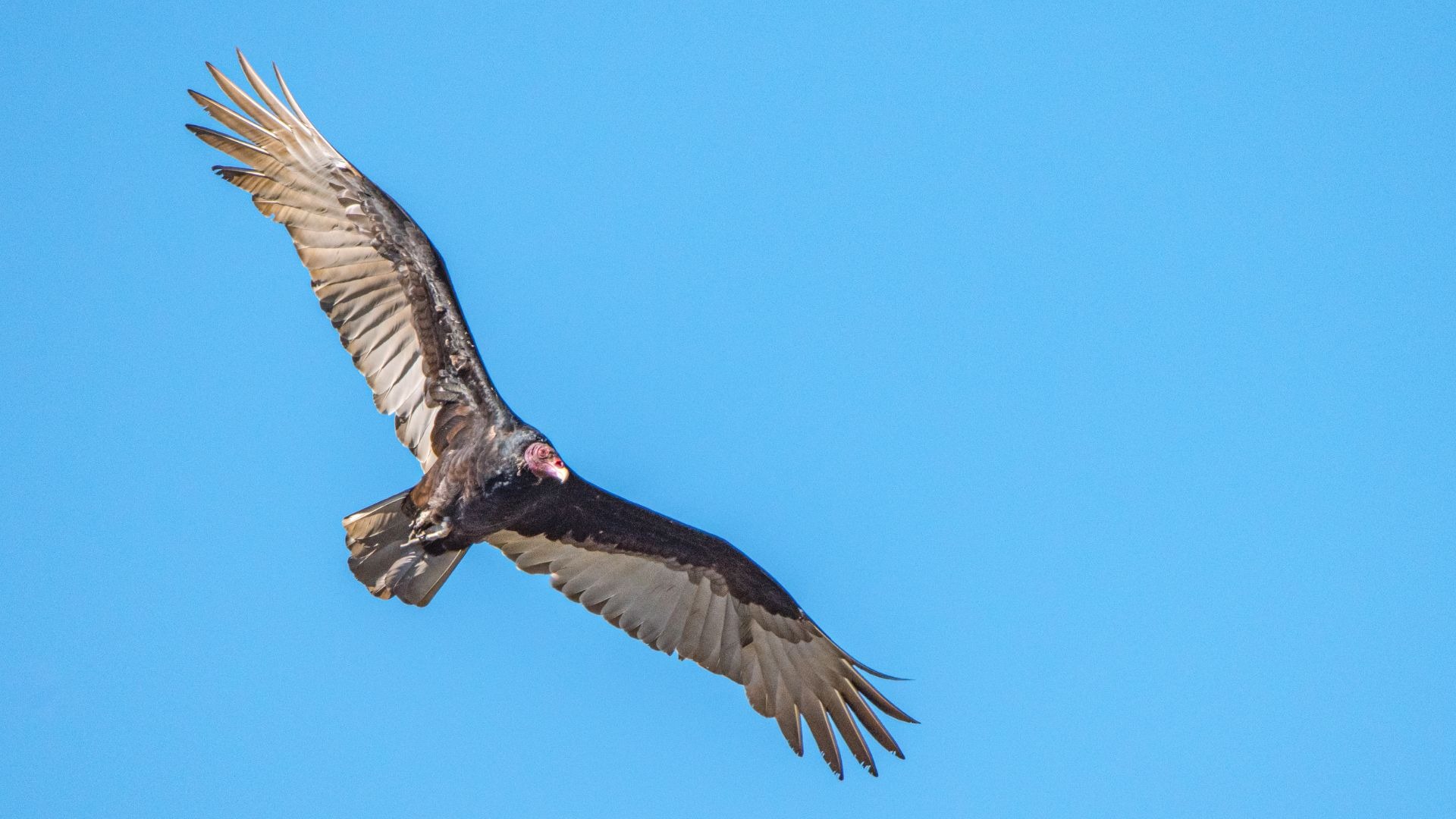
The return of the turkey vultures to the Midwest, usually in March, is as sure a sign of spring as pink and white wildflowers poking up through the leaf litter or the unfurling of tiny, new chartreuse leaves. When they migrate south in October, I feel sad.
Turkey vultures are scavenger birds, they scout for dead animals all day. They eat road kill. When I’ve seen them close up on the ground, they aren’t pretty, with their bald red heads, sharp beaks, and bulging eyes.
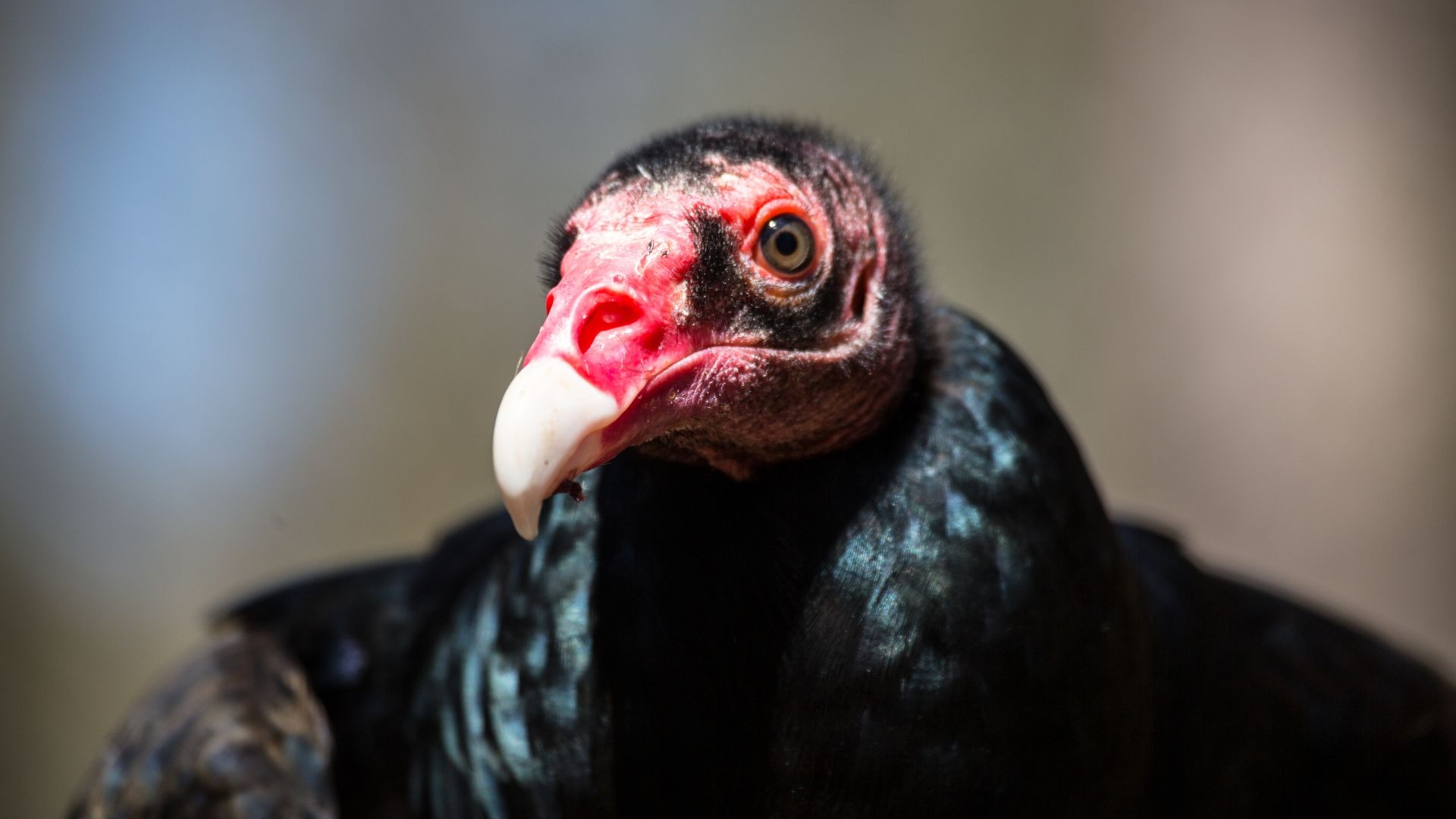
They have an essential role as nature’s recyclers. Their physiques are well adapted for their choice of food. They have excellent eyesight and are the only bird with an excellent sense of smell. They can smell a dead animal a mile away.
Their featherless red heads are another adaptation, it keeps them cleaner when they put their heads inside dead animals to feed. The juveniles have pinkish-black heads that turn red with age. Turkey vultures also urinate on their legs; scientists speculate that the uric acid may act as a disinfectant to protect them from bacteria in the dead animals. I have also been told that it cools them down.
Turkey vultures nest in abandoned barns or inside hollow trees. To protect themselves, the baby turkey vultures vomit up a liquid concoction of smelly, decaying meat on their attacker. Adults use the same defense mechanism.
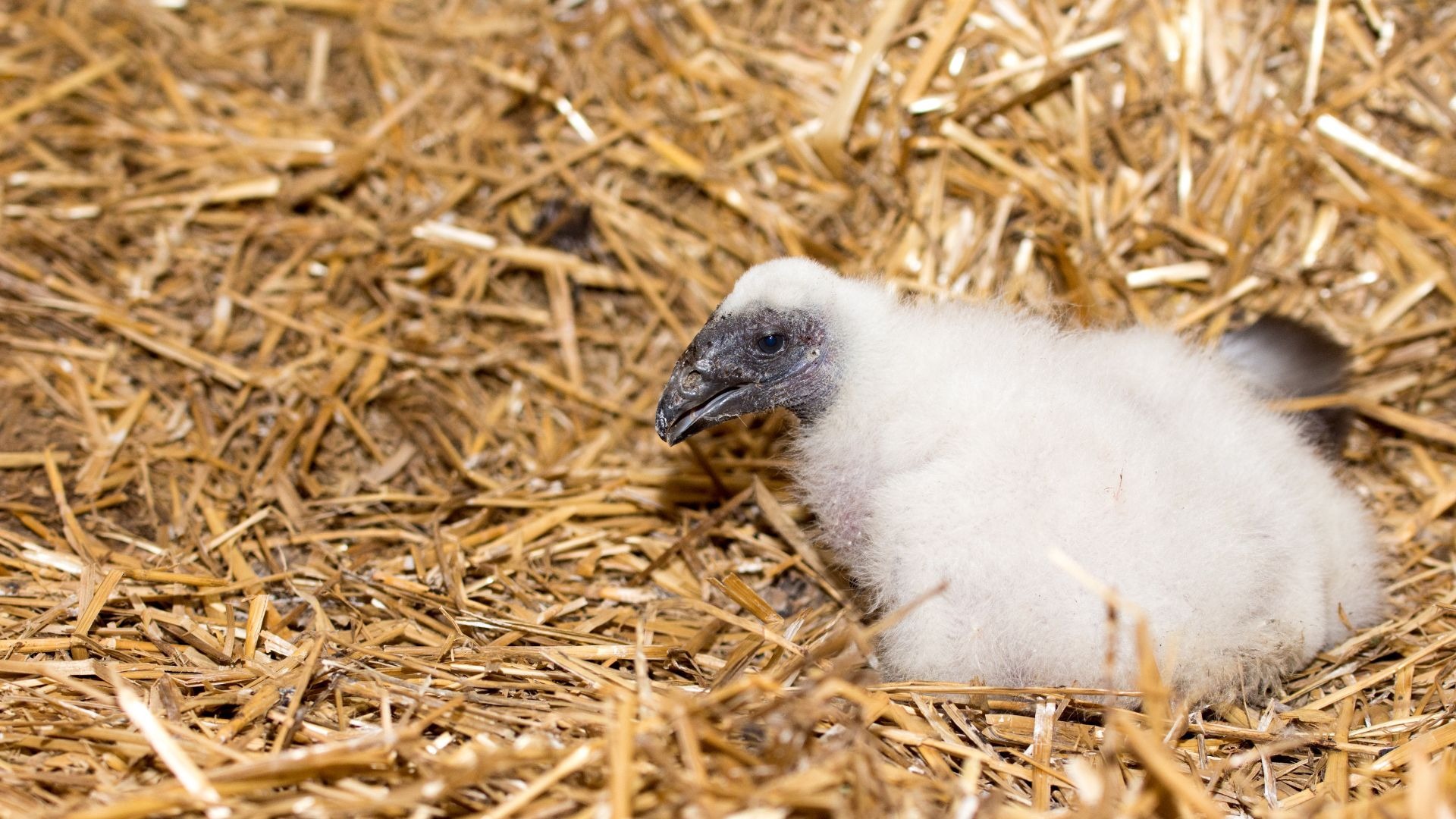
Turkey vultures soar on the thermals all day and roost together at night. One evening, I saw 50 turkey vultures perched above our house on my neighbor’s dead tree. While my neighbor and my husband took photographs, I watched them tuck their long black wings up against their bodies while their red bald heads bobbed on gaunt necks.
And I remembered that a roosting flock is called a wake of vultures.
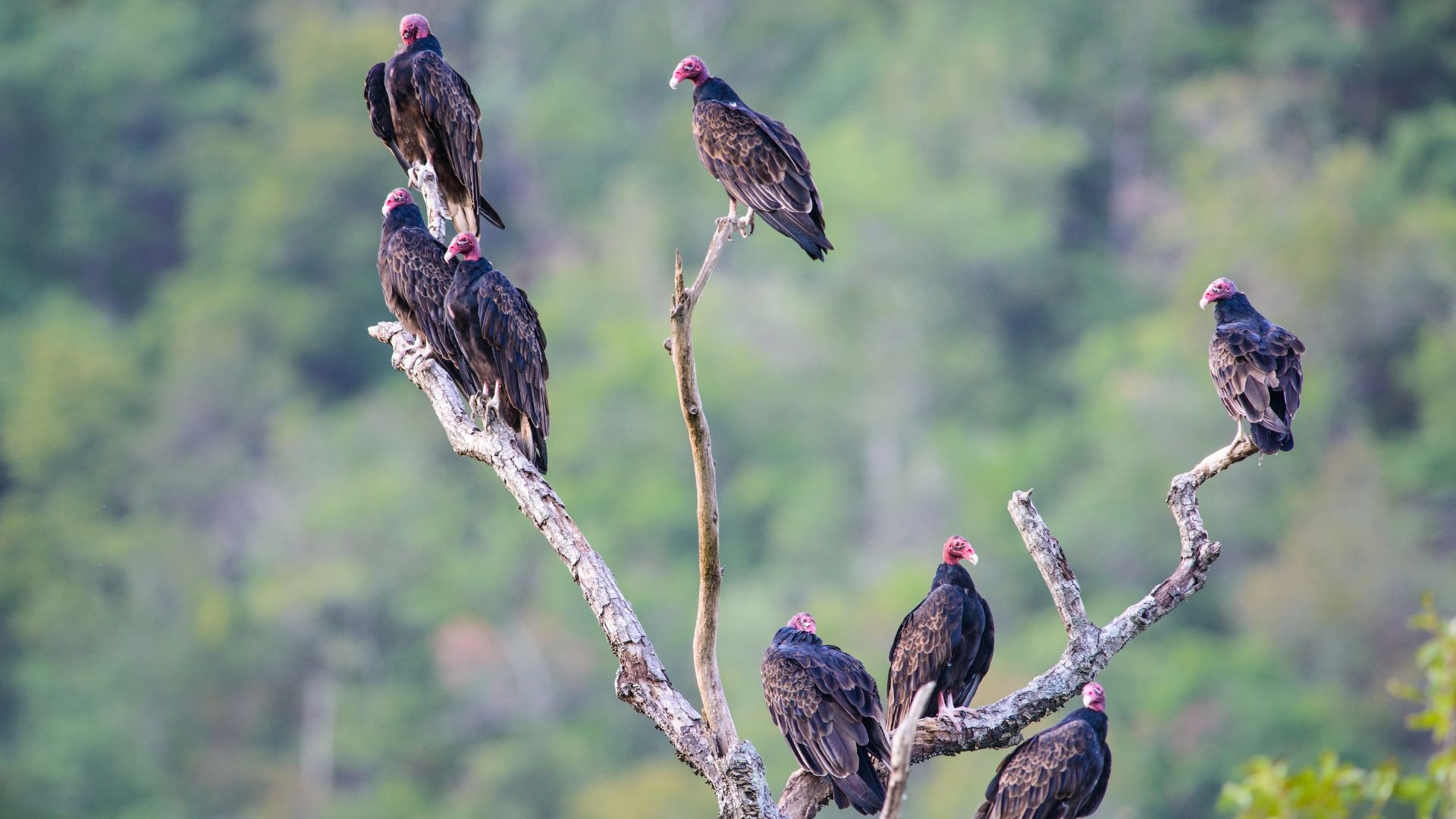
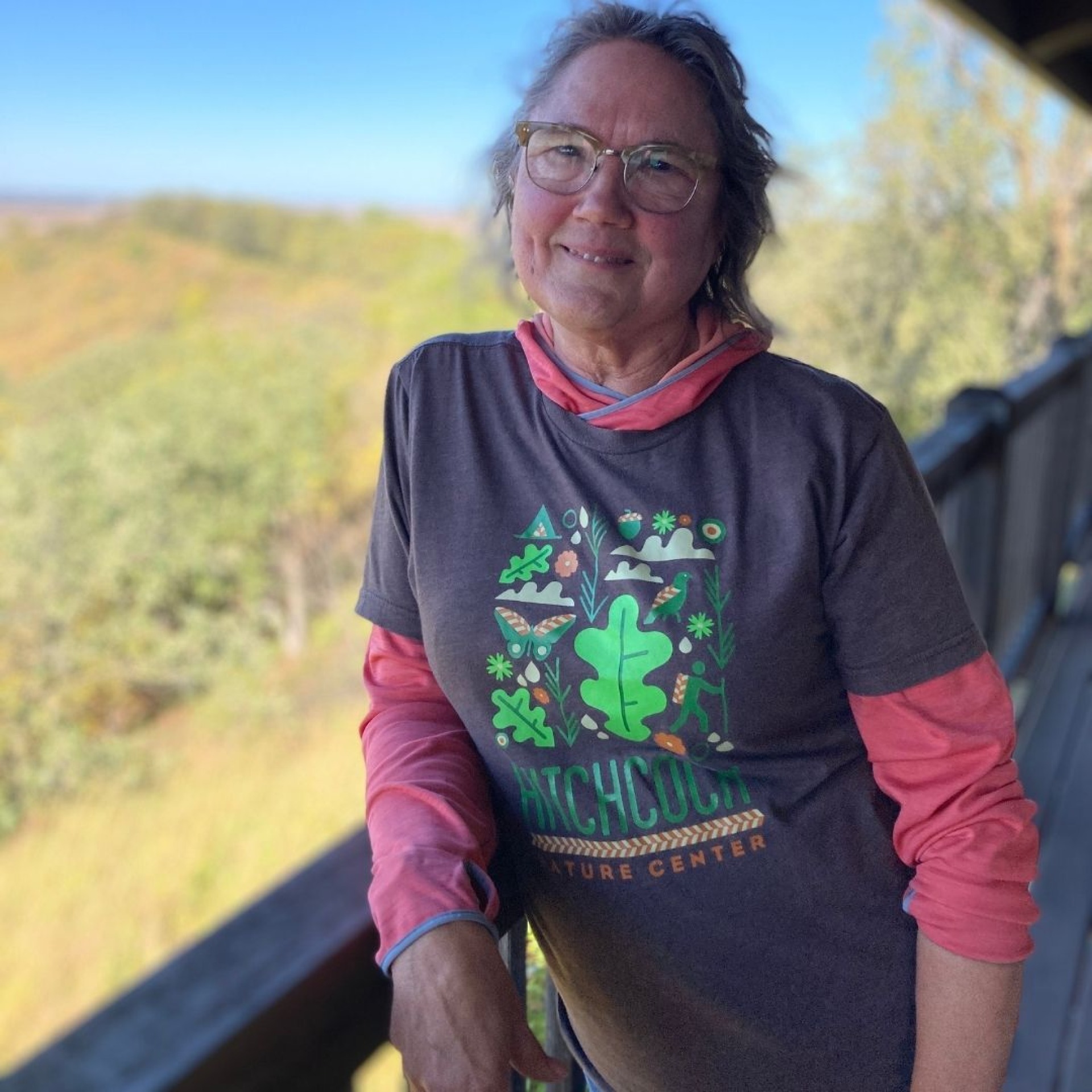 About Dorie
About Dorie
Dorie Stone started sharing her time and skills with Pottawattamie Conservation at Hitchcock Nature Center in September of 2007. Over the years she has assisted with many projects including harvesting seeds, assisting the Hitchcock HawkWatch group, supporting our environmental education staff and working as a Welcome Desk Ambassador at the Loess Hills Lodge gallery, among many others. She is a certified Nebraska Master Naturalist and has traveled up and down the Loess Hills National Scenic Byway many times and is full of recommendations.